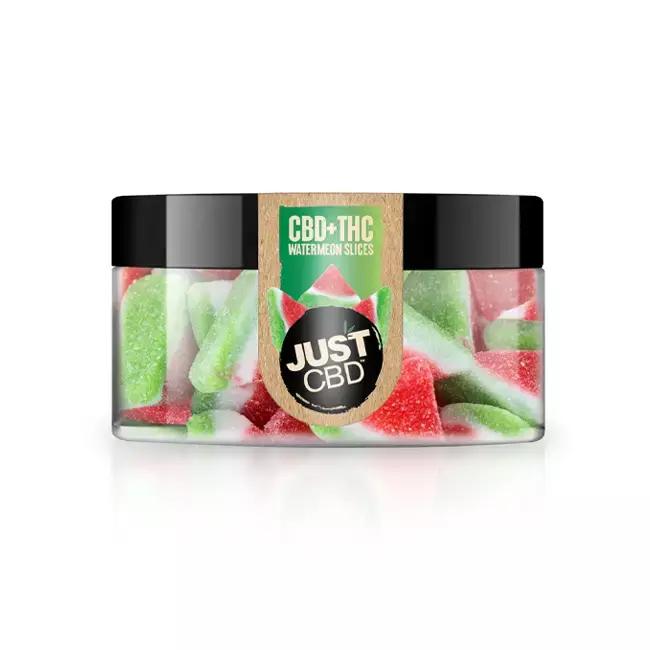Potential Benefits of Daily CBD Consumption
Daily consumption of CBD has gained popularity as people explore its potential benefits for various aspects of well-being. From managing chronic pain and reducing anxiety to promoting restful sleep and supporting overall health, CBD is being investigated for its therapeutic effects. While research on CBD’s long-term impacts is ongoing, preliminary findings suggest that incorporating it into a daily routine could offer numerous advantages for individuals seeking natural approaches to enhance their health and quality of life.
Pain Management
CBD gummies have emerged as a popular method for incorporating CBD into daily routines due to their convenience and ease of use. However, questions regarding their safety and effectiveness remain. Potential benefits associated with daily CBD consumption include:
- Pain Management
- Anxiety Reduction
- Improved Sleep Quality
- Reduced Inflammation
Anxiety and Stress Reduction
Among the potential benefits associated with daily CBD consumption, anxiety and stress reduction stand out as particularly promising. CBD is believed to interact with the endocannabinoid system, which plays a crucial role in regulating mood, sleep, and stress response.

- CBD may help reduce feelings of anxiety by modulating neurotransmitters involved in fear and anxiety responses.
- Studies have shown that CBD can decrease cortisol levels, the hormone associated with stress.
Improved Sleep Quality
Improved sleep quality is another potential benefit associated with daily CBD consumption. CBD’s interaction with the endocannabinoid system may promote relaxation and reduce anxiety, both of which contribute to better sleep. Studies have suggested that CBD can help improve sleep duration and quality in individuals experiencing insomnia or other sleep disturbances.
Neuroprotective Effects
Daily CBD consumption is being explored for its potential neuroprotective effects. Some research suggests that CBD may offer protection against neurodegenerative diseases by reducing inflammation, oxidative stress, and neuronal cell death.
CBD’s antioxidant properties may help protect brain cells from damage caused by free radicals, potentially slowing down the progression of neurodegenerative disorders such as Alzheimer’s disease and Parkinson’s disease.

Safety Considerations for Daily CBD Use
While daily CBD use shows promise for various health benefits, it’s crucial to prioritize safety. Understanding potential side effects, interactions with medications, and appropriate dosage are essential for responsible consumption. Consulting with a healthcare professional is recommended, especially for individuals with pre-existing medical conditions or who are taking other medications.
Drug Interactions
Daily CBD use can have potential benefits but it’s important to be aware of safety considerations. One key concern is the possibility of drug interactions. CBD can interact with various medications, including blood thinners, antidepressants, and certain antibiotics. These interactions may alter the effectiveness of the medications or increase the risk of side effects.
Another consideration is dosage. It’s important to start with a low dose and gradually increase it as needed, under the guidance of a healthcare professional. Too high a dose can lead to adverse effects such as drowsiness, diarrhea, or changes in appetite.
Individuals with pre-existing medical conditions, pregnant women, and breastfeeding mothers should exercise caution and consult with a doctor before using CBD.
Side Effects
While CBD offers potential benefits for daily use, it’s crucial to be aware of possible side effects. Common side effects include dry mouth, drowsiness, diarrhea, changes in appetite, and nausea. These effects are generally mild and temporary, but they may be more pronounced with higher doses or in individuals sensitive to CBD.
Drug interactions can also occur when taking CBD alongside certain medications. It’s essential to inform your doctor about all medications you are currently taking before using CBD, as it can potentially interfere with their effectiveness or increase the risk of adverse effects.
Pregnant women and breastfeeding mothers should consult with their healthcare providers before using CBD, as its potential effects on fetal development or infants are not fully understood.
Dosage and Administration
Daily consumption of CBD has gained popularity as people explore its potential benefits for various aspects of well-being. From managing chronic pain and reducing anxiety to promoting restful sleep and supporting overall health, CBD is being investigated for its therapeutic effects. While research on CBD’s long-term impacts is ongoing, preliminary findings suggest that incorporating it into a daily routine could offer numerous advantages for individuals seeking natural approaches to enhance their health and quality of life.
CBD gummies have emerged as a popular method for incorporating CBD into daily routines due to their convenience and ease of use. However, questions regarding their safety and effectiveness remain. Potential benefits associated with daily CBD consumption include:
- Pain Management
- Anxiety Reduction
- Improved Sleep Quality
- Reduced Inflammation
Among the potential benefits associated with daily CBD consumption, anxiety and stress reduction stand out as particularly promising. CBD is believed to interact with the endocannabinoid system, which plays a crucial role in regulating mood, sleep, and stress response.
- CBD may help reduce feelings of anxiety by modulating neurotransmitters involved in fear and anxiety responses.
- Studies have shown that CBD can decrease cortisol levels, the hormone associated with stress.
Improved sleep quality is another potential benefit associated with daily CBD consumption. CBD’s interaction with the endocannabinoid system may promote relaxation and reduce anxiety, both of which contribute to better sleep. Studies have suggested that CBD can help improve sleep duration and quality in individuals experiencing insomnia or other sleep disturbances.
Daily CBD consumption is being explored for its potential neuroprotective effects. Some research suggests that CBD may offer protection against neurodegenerative diseases by reducing inflammation, oxidative stress, and neuronal cell death.
CBD’s antioxidant properties may help protect brain cells from damage caused by free radicals, potentially slowing down the progression of neurodegenerative disorders such as Alzheimer’s disease and Parkinson’s disease.
While daily CBD use shows promise for various health benefits, it’s crucial to prioritize safety. Understanding potential side effects, interactions with medications, and appropriate dosage are essential for responsible consumption. Consulting with a healthcare professional is recommended, especially for individuals with pre-existing medical conditions or who are taking other medications.
Daily CBD use can have potential benefits but it’s important to be aware of safety considerations. One key concern is the possibility of drug interactions. CBD can interact with various medications, including blood thinners, antidepressants, and certain antibiotics. These interactions may alter the effectiveness of the medications or increase the risk of side effects.
Another consideration is dosage. It’s important to start with a low dose and gradually increase it as needed, under the guidance of a healthcare professional. Too high a dose can lead to adverse effects such as drowsiness, diarrhea, or changes in appetite.
Individuals with pre-existing medical conditions, pregnant women, and breastfeeding mothers should exercise caution and consult with a doctor before using CBD.
While CBD offers potential benefits for daily use, it’s crucial to be aware of possible side effects. Common side effects include dry mouth, drowsiness, diarrhea, changes in appetite, and nausea. These effects are generally mild and temporary, but they may be more pronounced with higher doses or in individuals sensitive to CBD.
Drug interactions can also occur when taking CBD alongside certain medications. It’s essential to inform your doctor about all medications you are currently taking before using CBD, as it can potentially interfere with their effectiveness or increase the risk of adverse effects.
Pregnant women and breastfeeding mothers should consult with their healthcare providers before using CBD, as its potential effects on fetal development or infants are not fully understood.
Quality and Sourcing of CBD Products
When considering daily CBD use, quality and sourcing are paramount. Opt for products from reputable brands that provide third-party lab testing results. These reports verify the CBD content, absence of contaminants (like pesticides or heavy metals), and accurate labeling.
Look for full-spectrum CBD oils, which contain a variety of cannabinoids and terpenes found in the hemp plant. Research suggests that these compounds work synergistically to enhance CBD’s effects.
Be wary of products making unsubstantiated claims or using misleading marketing tactics.
Legal Status and Regulations
The legal status and regulations surrounding CBD vary significantly from country to country and even within different regions of a single nation. Some countries have legalized CBD for all uses, while others have restricted it to specific medical applications or prohibited it entirely.
Federal Law in the US
In the United States, the legality of CBD is complex and depends on the source and concentration of CBD.
The 2018 Farm Bill legalized the cultivation and sale of hemp-derived CBD products containing less than 0.3% THC at the federal level.
However, CBD derived from marijuana remains illegal under federal law. State laws regarding CBD can vary, with some states having more permissive regulations than others.
It’s essential to consult your state’s specific laws and regulations regarding CBD to ensure compliance.
State-Specific Laws
The legal status and regulations surrounding CBD vary significantly from country to country and even within different regions of a single nation. Some countries have legalized CBD for all uses, while others have restricted it to specific medical applications or prohibited it entirely.
- United States: The legality of CBD is complex and depends on the source and concentration of CBD. The 2018 Farm Bill legalized the cultivation and sale of hemp-derived CBD products containing less than 0.3% THC at the federal level. However, CBD derived from marijuana remains illegal under federal law. State laws regarding CBD can vary, with some states having more permissive regulations than others.
- Canada: Hemp-derived CBD products with low THC content (less than 10mg per package) are legal for sale and consumption.
- European Union: The EU has a complex regulatory framework for CBD, but generally permits the sale of hemp-derived CBD products containing less than 0.2% THC.
- United Kingdom:** Hemp-derived CBD products with low THC content are legal.
It’s essential to consult your state’s specific laws and regulations regarding CBD to ensure compliance.
Long-Term Effects of Daily CBD Use
While daily CBD use shows promise for various health benefits, it’s crucial to understand its potential long-term effects. Research on the long-term impact of daily CBD consumption is ongoing, with some studies suggesting potential benefits, but more research is needed to fully understand its implications over extended periods.
Research Limitations
Long-term research on the effects of daily CBD use is still limited. Many studies focus on short-term outcomes, making it difficult to draw definitive conclusions about long-term health impacts.
One area where more research is needed is understanding the potential for CBD to interact with other medications or conditions over extended periods.
Another limitation is the variability in product quality and dosage. The lack of standardized regulations can lead to inconsistencies in CBD content and purity across different brands and products, making it challenging to assess long-term effects accurately.
Potential for Tolerance or Dependence
While research on the long-term effects of daily CBD use is ongoing, some preliminary findings suggest potential benefits for managing chronic pain, anxiety, sleep disorders, and inflammation. However, more extensive studies are needed to fully understand the implications of long-term CBD consumption.
The potential for tolerance or dependence with daily CBD use is a topic of ongoing research. Some studies indicate that regular CBD use may lead to a decreased response over time, potentially requiring higher doses to achieve the same effects. However, CBD appears to have a lower risk of dependence compared to other substances, and there’s limited evidence suggesting severe withdrawal symptoms when discontinuing daily CBD use.
Order CBD Gummies for a peaceful mind
Score tasty cbd oil gummies via JustCBD
The First Come First Served
The Zanuck Group
- Brow Lift Treatment Near Norbiton, Surrey - May 9, 2025
- Comparing THC Seltzers And CBD Beverages - May 9, 2025
- Digital Ghosting: When They Vanish Without A Word Online - May 8, 2025
